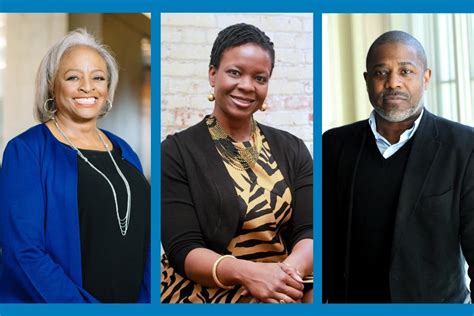Are you a scholar dedicated to unraveling the complexities of the African American experience? Emory University invites you to embark on an enlightening postdoctoral journey with our esteemed African American Studies Program. This prestigious fellowship offers a unique platform to delve into the rich tapestry of African American history, culture, and society, shaping a new generation of critical thinkers and thought leaders.

Embracing Interdisciplinary Perspectives
Our program fosters an interdisciplinary approach, empowering you to explore African American studies through a kaleidoscope of lenses. Engage with renowned faculty from diverse fields, including history, literature, sociology, and anthropology. Collaborate with scholars across departments and disciplines, cross-fertilizing ideas and expanding your intellectual horizons.
Research Support and Mentorship
As a postdoctoral fellow, you will receive exceptional research support and mentorship. Access to Emory’s world-class research facilities, including the Rose Library, will provide an unparalleled environment for your scholarly pursuits. Benefit from the guidance of esteemed faculty mentors who will nurture your research agenda and support your professional growth.
Advancing the Field of African American Studies
Our fellowship program is committed to advancing the field of African American Studies through rigorous research and innovative scholarship. Fellows will have the opportunity to present their findings at conferences, publish in top-tier journals, and contribute to the ongoing dialogue on race, culture, and identity. By interrogating historical narratives and challenging prevailing paradigms, you will push the boundaries of knowledge and shape future scholarship.
Benefits and Eligibility
- Stipend: $50,000 per year
- Health insurance and other benefits
- Access to research and development funds
- Eligibility: Recent PhD graduates in African American Studies or a related field
How to Apply
To apply for the Emory Postdoctoral Fellowship in African American Studies, please submit the following materials:
- Curriculum vitae
- Statement of research interests
- Writing sample
- Three letters of recommendation
Submit your application online by December 15th for full consideration.
Join a Vibrant Community
Join a thriving community of scholars, activists, and students at Emory University. Engage in lively intellectual discussions, participate in cultural events, and connect with a network of professionals dedicated to promoting racial justice and social change.
Common Mistakes to Avoid
- Failing to clearly articulate research interests: Your statement of research interests should succinctly outline your proposed research project and its significance to the field of African American studies.
- Neglecting to highlight interdisciplinary perspectives: Emphasize how your research draws upon diverse disciplines and methodologies, showcasing the interdisciplinary nature of your work.
- Underestimating the importance of letters of recommendation: Secure strong letters of recommendation from scholars who can attest to your academic abilities, research potential, and professional conduct.
Step-by-Step Application Guide
- Gather your materials: Compile your CV, statement of research interests, writing sample, and letters of recommendation.
- Prepare your application: Craft a compelling application that clearly articulates your research interests, research methods, and the potential impact of your scholarship.
- Submit your application: Submit your application online by the specified deadline.
- Prepare for an interview: If shortlisted, prepare for an interview with the selection committee to discuss your research proposal and academic background.
Table 1: Notable African American Scholars
| Name | Field | Institution |
|---|---|---|
| W.E.B. Du Bois | Sociology | Atlanta University |
| Carter G. Woodson | History | Howard University |
| Zora Neale Hurston | Literature | Howard University |
| Toni Morrison | Literature | Princeton University |
| Michelle Alexander | Law | Stanford University |
Table 2: Key Research Areas in African American Studies
| Area | Description |
|---|---|
| History | Explores the historical experiences of African Americans in the United States and the African diaspora |
| Literature | Analyzes the literary works of African American authors, focusing on themes of identity, race, and social justice |
| Sociology | Examines the social structures and institutions that shape the lives of African Americans |
| Anthropology | Investigates the cultural practices, belief systems, and social organization of African American communities |
| Political Science | Explores the political participation, representation, and influence of African Americans in the United States |
Table 3: Impact of African American Studies Scholarship
| Impact | Description |
|---|---|
| Historical Understanding | Deepens our understanding of the African American experience, challenging traditional narratives and filling gaps in historical knowledge |
| Cultural Awareness | Fosters a greater appreciation for African American culture, its contributions to American society, and its global significance |
| Social Justice | Informs policies and practices aimed at addressing racial inequality and promoting social justice |
| Educational Equity | Enhances educational opportunities for African American students, empowering them to succeed academically and pursue their aspirations |
| Global Understanding | Provides a broader perspective on race and identity, fostering cross-cultural dialogue and understanding |
Table 4: Future Directions in African American Studies
| Direction | Description |
|---|---|
| Digital Humanities | Uses digital tools and technologies to analyze and interpret African American history and culture |
| Global Diaspora Studies | Explores the experiences of African Americans in the global context, examining their connections, migrations, and cultural exchange |
| Intersectional Studies | Analyzes the intersection of race, gender, class, and sexuality in shaping the experiences of African Americans |
| Health Disparities Research | Investigates the health disparities faced by African Americans and develops interventions to address them |
| Policy Analysis | Evaluates the impact of public policies on African American communities, informing policy recommendations |
